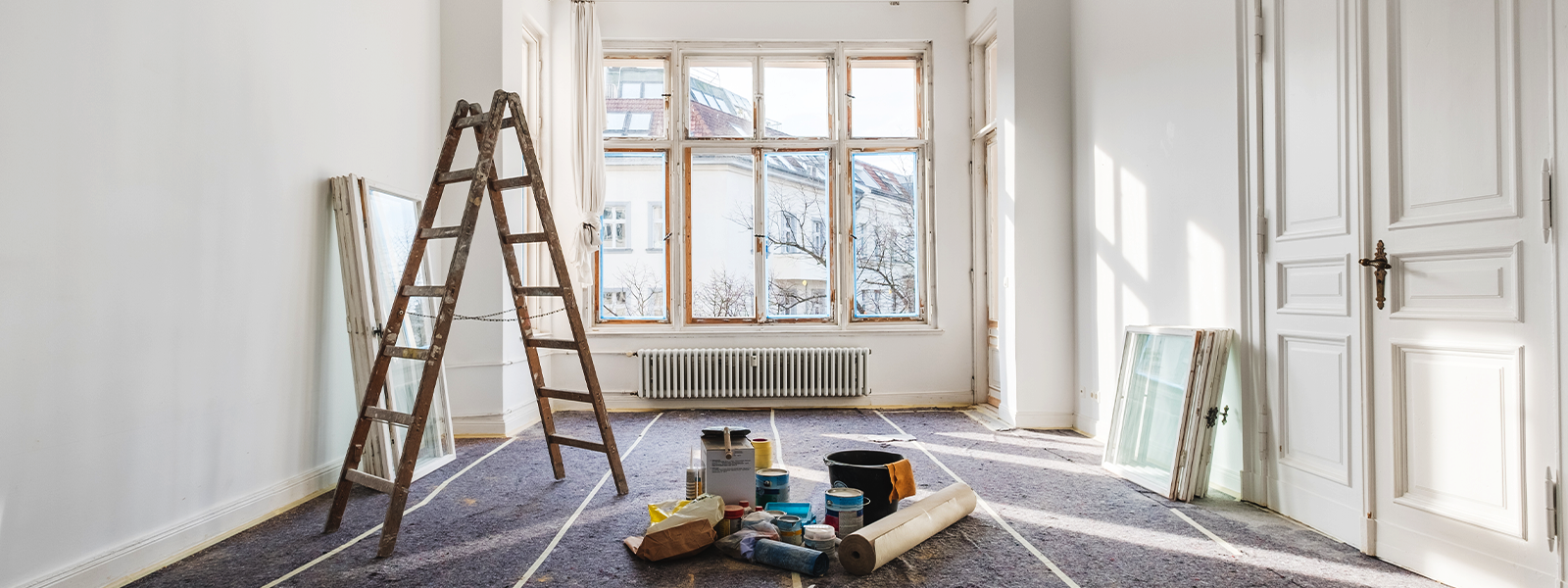Know All About Flat/Apartment Maintenance Charges
October 18, 2024 in Knowledge Base

In India, as urbanization continues to rise, more and more people are choosing to live in apartments and flats due to their convenience and affordability. When residing in a flat or apartment complex, maintenance charges play a crucial role in ensuring the smooth functioning and upkeep of the entire community.
Buying a property in modern-day India can be really challenging, considering the rising rates of properties. Most of these properties nowadays require the residents or owners to pay maintenance charges on flats. This can either be charged on a monthly or annual basis. The flat maintenance charges act as the fund that you need to deposit for the maintenance of the whole society or complex. In the article below, we will cover all the information you must know about flat maintenance charges.
What are Flat Maintenance Charges?
Flat maintenance charges, also known as society maintenance charges or maintenance fees, refer to the regular payments that residents of a housing society or apartment complex make to cover the expenses of maintaining and managing the common areas and facilities. These charges are collected by the resident welfare association or the society management committee, and they are utilized to cover various expenses related to the upkeep of the property.
Most of the gated communities and societies have a wide range of amenities for the residents. The flat maintenance charge is indeed a monthly fee for using these services. It is important that the residents pay the flat maintenance charges on time. While some builders will like it to be a part of the monthly rent, others may just include it in the rent. You must consider consulting with the developer or the owner about these additional maintenance charges on flat.
Components of Flat Maintenance Charges
Flat maintenance charges are not a fixed amount and typically consist of various components. Let's explore the common components of maintenance charges in flats:
Common Area Maintenance: This includes the upkeep and maintenance of common areas such as corridors, staircases, elevators, lobby, terrace, garden, playground, swimming pool, gymnasium, etc.
Security and Surveillance: Charges related to security personnel and systems, CCTV maintenance, and other security measures are included in this category.
Utilities: The cost of water supply, electricity for common areas, lighting, and other utilities used for the entire complex are part of the maintenance charges.
Housekeeping: Charges for maintaining cleanliness and hygiene in common areas and providing housekeeping services.
Administrative Expenses: This component covers the expenses incurred for the management and administration of the society, including staff salaries, office expenses, accounting fees, etc.
Repairs and Maintenance: These funds are set aside to carry out repairs and maintenance work for common facilities and infrastructure.
Insurance Premiums: This includes insurance costs for the building, common areas, and sometimes even for individual flats as a group insurance policy.
Legal and Statutory Charges: Expenses related to legal and statutory compliance, such as property tax, society registration charges, etc.
Contingency Fund: A portion of the maintenance charges is allocated to a contingency fund to meet unexpected expenses or major repairs.
=> Read Also:- What is IFMS (Interest-Free Maintenance Charge) in Real Estate?
Calculation of Flat Maintenance Charges
The calculation of maintenance charges can vary from one housing society to another, but it is generally based on the principles of fairness and transparency. The most common methods to determine how maintenance charges are calculated include:
-
Equal Sharing: In this method, all flat owners pay an equal amount irrespective of the size or type of their flat. This approach is simple and straightforward, but it may not be the most equitable, especially in societies with significantly varying flat sizes.
-
Area-Based: Maintenance charges are calculated based on the carpet area or built-up area of individual flats. Larger flats pay higher charges compared to smaller ones as they occupy more space and place a relatively higher burden on common facilities.
-
Per Square Foot Rate: In this method, a fixed rate per square foot is applied to each flat's area to determine the maintenance charges. It strikes a balance between equal sharing and area-based methods.
-
Basis of Amenities Used: Some societies have a system where maintenance charges are calculated based on the specific amenities used by each resident. For instance, those who use parking spaces or opt for additional facilities may pay extra.
-
Hybrid Model: Many societies use a combination of the above methods to arrive at maintenance charges, taking into account various factors such as the flat area, amenities used, and number of occupants.
- It's essential for the management committee to communicate the maintenance charge calculation method clearly to all residents and make it available in writing for transparency and accountability.
Collection and Utilization of Maintenance Charges
Maintenance charges are usually collected on a monthly or quarterly basis. The association or society management committee sends out invoices or maintenance bills, specifying the amount and due date. Residents are expected to pay these charges promptly to ensure the smooth functioning of essential services and facilities.
The utilization of different types of maintenance charges should be done judiciously and in line with the society's bylaws or rules and regulations. It is the responsibility of the management committee to use these funds for the intended purposes and avoid misappropriation or misuse of funds.
Rights and Responsibilities of Residents
As a resident paying maintenance charges on flat, you have certain rights and responsibilities. Understanding these is crucial for maintaining a harmonious living environment and ensuring that the maintenance charges are used effectively:
-
Right to Information: Residents have the right to know how the maintenance charges are calculated and how the funds are utilized. The management committee should provide a detailed breakdown of expenses and keep residents informed about any changes in charges or major maintenance activities.
-
Participation in Decision Making: Residents have the right to participate in society meetings and provide their input on maintenance-related decisions. They can also contest and question any discrepancies in charge calculations or fund utilization.
-
Timely Payment: Residents are responsible for paying their maintenance charges on time to avoid any penalties or inconvenience to others. Timely payments ensure that the society has adequate funds to maintain essential services.
-
Contribution to Community Welfare: Being part of a housing society comes with the responsibility to contribute to the overall welfare of the community. Residents should take care of common property, follow society's rules, and cooperate with others to maintain a harmonious living environment.
-
Reporting Maintenance Issues: Residents should promptly report any maintenance issues or repairs required in common areas to the management committee. This helps in quick resolution, prevents further damage and helps to understand how to reduce maintenance charges.
Disputes and Conflict Resolution
In some instances, disputes may arise between residents and the society management committee regarding maintenance charges or their utilization. It is essential to address these issues amicably and transparently. Here are some steps that can be taken for conflict resolution:
-
Open Communication: Both parties should engage in open and honest communication to understand each other's perspectives and concerns.
-
Reviewing Society Bylaws: If there is a disagreement about apartment maintenance charges calculation, both parties should review the society's bylaws and regulations to ensure compliance.
-
Mediation: In case of unresolved disputes, seeking the assistance of a neutral mediator can help facilitate constructive discussions and find a middle ground.
-
Legal Recourse: If all other avenues fail, residents or the management committee can seek legal recourse. However, legal action should be considered as a last resort.
Transparency
The flat maintenance charges are paid in two ways. The first one is paid to the developer for maintaining the property. The second type is paid to the RWA in periodic instalments. Most of the details for this will be available on the builder-buyer agreement. It is advisable to read these terms and conditions thoroughly to avoid any problems.
Some of the major transparency components to take care of in terms of flat maintenance are as follows:
- The builder must not consider the apartment maintenance charges to be a part of their income.
- If there is any interest upon the flat maintenance charges, all the amount should be deposited in the same bank account.
- The builder must create a different bank account to collect these charges. A chartered accountant should be assigned to look into this account.
- If the builder is collecting fees on behalf of the Residents Welfare Association, they must keep it for only a little time.
- When giving the amount to RWA, the builder must strictly provide a detailed Income and Expenditure Account. This must be verified by a CA for its legitimacy.
Maintaining transparency for apartment maintenance charges becomes extremely crucial. This plays an important role in ensuring there are no discrepancies in the amount. This serves to be beneficial for residents as well as the builder and RWA.
As urbanization continues to grow, housing societies and apartment complexes will play an increasingly important role in shaping our living spaces. By fostering transparency, accountability, and a sense of community, we can make our housing societies not only functional but also thriving and vibrant places to call home. Thus, make sure to keep up with the trends.
Conclusion
Maintenance charges on flats are an integral aspect of community living in apartments and flats. These charges ensure the proper functioning and upkeep of common areas and amenities, contributing to a comfortable and pleasant living environment for all residents. Understanding the components of maintenance charges, their calculation methods, and the rights and responsibilities of both residents and the management committee is essential for a harmonious coexistence and effective management of resources.
Looking for dream spaces, not sure where to start?
Leave us a query and our representative will get back to you.
Disclaimer
The Adani Realty expressly disclaims all liability in respect to actions taken or not taken based on any or all the contents of this Blog. The content of this blog is collation of data from various sources and is provided only for information purpose only and Adani Realty does not canvass the particulars, information, brand or any other materials mentioned in the blogs nor does it obtain any monetary benefit from the same.The Adani Realty shall in no circumstance be held liable for any expense, loss or damage including, without limitation, direct, indirect or consequential loss or damage, or any other expense, loss or damage whatsoever arising from the use of data, information, interpretation, judgement or opinion arising out of or in connection with the use of this Blog. Reader is advised to read and apply his/ her intellect and discretion in this regards.

